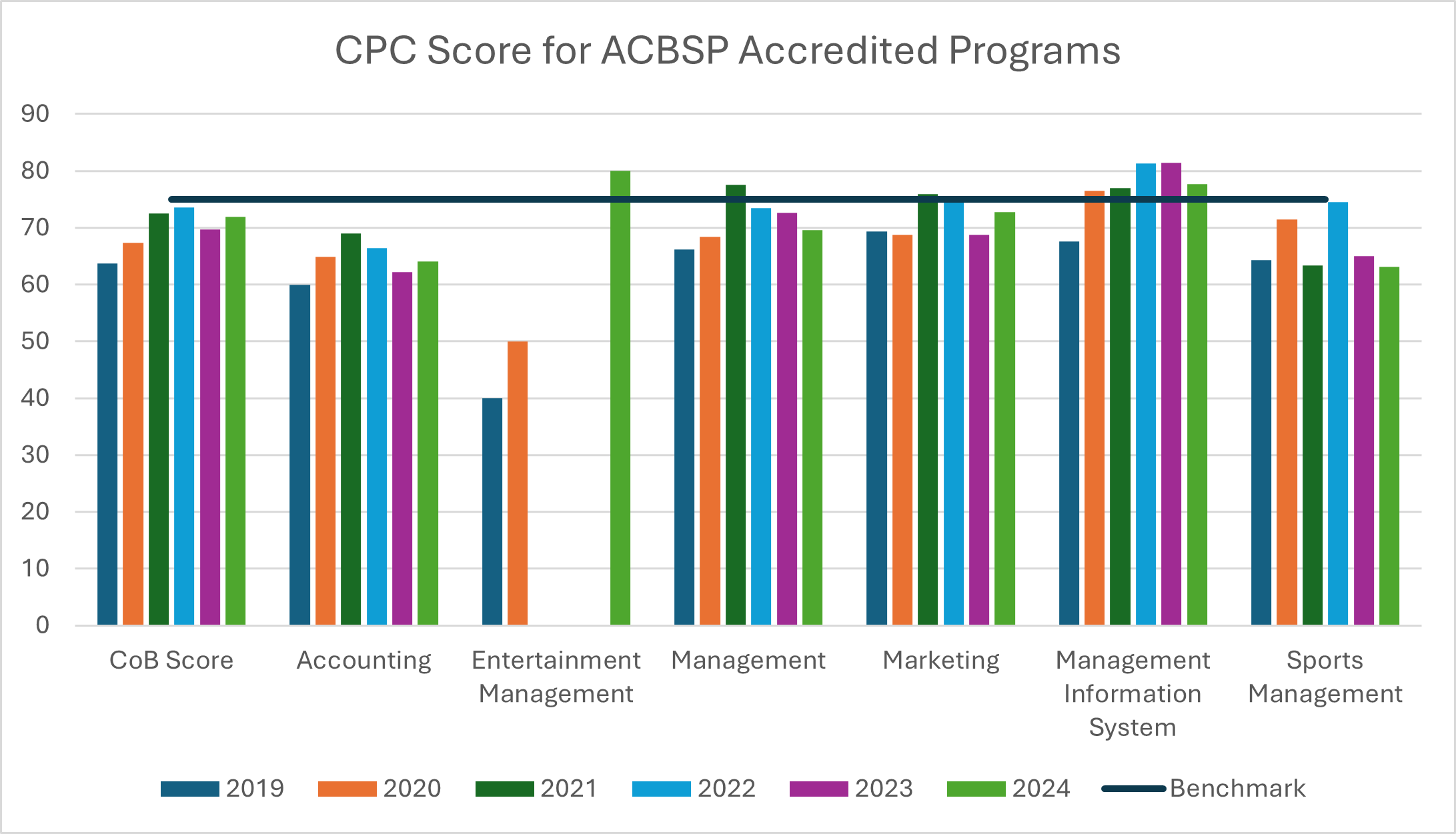Accreditation and Assessment
College of Business
The College of Business holds specialized accreditation from the Accreditation Council for Business Schools and Programs (ACBSP).
Academic & Operational Excellence
The Accreditation Council for Business Schools and Programs (ACBSP) granted the College of Business specialized business accreditation, November 2015. To maintain our goal of high standards for teaching and learning, we stay focused on continuous improvement and our academic quality. Learn more about the importance of specialized business accreditation, student achievement and more.
What is Accreditation?
Accreditation is a process led by governmental and non-governmental organizations to set standards for acceptable levels of quality education. These organizations create evaluation criteria, lead interviews, review student assessment data, and conduct peer evaluations to determine if a program or institution meets established criteria. Accreditation can be at the university-level, school-level, and also program-level.
When an institution, school or program seeks accreditation, it often has to officially request an evaluation from a particular accrediting agency.
Why is Accreditation Important?
Accreditation ensures the education provided by a specific institution, school, or program meets a certain quality standard. It’s important to note the U.S. Department of Education does not accredit higher education institutions or programs. However, the Department of Education does keep an official record of nationally-recognized accreditation agencies proven to be authorities on the quality of education or training. The Department of Education may also consider the accreditation of a higher education institution when determining federal financial aid.
The Accreditation Council for Business Schools and Programs (ACBSP)
The ACBSP is a national organization founded in 1988 to address the need for more specialized accreditation for higher education business schools and programs. At the time, there was only one accrediting body that focused accreditation standards largely on research. Many schools didn’t primarily focus on research, instead their primary objectives were around student success and teaching excellence. The ACBSP was founded to serve as an accrediting body for schools seeking accreditation based on quality in teaching and learning outcomes.
Assessment Data Standards
The COB has continuously assessed our academic programs since 2013, using course assessments, as well as student, faculty, and stakeholder feedback. We remain committed to meet and exceed the assessment measures set by both regional and specialized accreditors.
The College prepares numerous assessment reports as a part of the accreditation process. Specifically, we provide information on learning outcomes performance and other data related to academic and business practices. We share these reports with the University, the University System of Maryland (USM), and the Maryland Higher Education Commission (MHEC).
The College of Business learning outcomes are:
-
SLO 1 Written Communication
-
SLO 2 Oral Communication
-
SLO 3 Critical Thinking
-
SLO 4 Quantitative Literacy
-
SLO 5 Informational Literacy
-
SLO 6 Global Awareness
-
SLO 7 Leadership
-
SLO 8 Team Building
-
SLO 9 Ethics
-
SLO 10 Reflective Practice
Student Body
356 enrolled students
37 transfer students
COB: | 356 |
Full-time: | 310 (87%) |
Part-time: | 46 (13%) |
Male: | 166 (47%) |
Female: | 188 (53%) |
FTFT: | 93 (26%) |
Living on campus: | 119 (41%) |
Mean Student Age: | 24 |
Success Rates
| Retention (1st to 2nd year): | 78% |
| Graduation (within 6th year): | 24% |
Student Achievement: Undergraduate Exit Examination
(Benchmark 75% or above.)
